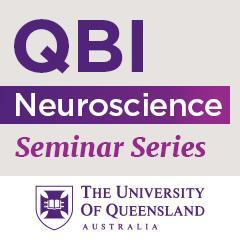Professor Aileen McGonigal - Mater Hospital, Brisbane : "Epilepsy, Rhythms and Behaviour"

Speaker:
Professor Aileen McGonigal
Director, Mater Epilepsy Unit
Mater Hospital, Brisbane QLD
Title: Epilepsy, Rhythms and Behaviour
Abstract:
Epilepsy is the commonest serious chronic brain disorder, affecting 50 million people worldwide, with increased risk of injury, premature death and poor quality of life. Epilepsy is characterised by intermittent disturbances of brain rhythms, expressed as recurrent seizures. Seizures manifest in diverse ways according to the spatial and temporal characteristics of the brain networks involved, and the phylogenetic complexity of the species. In humans, detailed comparison can be made of the clinical features of seizures (which may include abnormal movements or behaviour; altered sensations or emotional state; altered consciousness; etc.) and their neural correlates measured using electroencephalography (EEG) methods, either via scalp or intracerebral electrodes (stereoelectroencephalography, SEEG), with millisecond timescale resolution. Seizure networks, and the corresponding seizure-related behavioral changes, tend to be stereotyped for individual patients and show similarities across groups; as such, the clinical seizure signature (“semiology”) contains key information about underlying cerebral network activity. Outside of seizure periods (which typically evolve dynamically over seconds-minutes), patients with epilepsy have a high prevalence of cognitive and/or neuropsychiatric symptoms, likely related to background dysfunction of specific brain networks; depression in particular has a bidirectional relation with epilepsy and its presence is a main determinant of poorer quality of life, independently of seizure burden.
This talk will focus on the following aspects of human epilepsy: (1) how the cerebral network concept of epilepsy has been elucidated using SEEG recordings of seizures; (2) how study of complex behavioural phenomena occurring during seizures (e.g., motor stereotypies, emotion, altered consciousness) can inform knowledge of their neural correlates; (3) how depression, anxiety and stress may interact with epileptogenesis and seizure occurrence, and how tools for measuring these psychological comorbidities in humans can be used in a research context.
About Neuroscience Seminars
Neuroscience seminars at the QBI play a major role in the advancement of neuroscience in the Asia-Pacific region. The primary goal of these seminars is to promote excellence in neuroscience through the exchange of ideas, establishing new collaborations and augmenting partnerships already in place.
Seminars in the QBI Auditorium on Level 7 are held on Wednesdays at 12-1pm, which are sometimes simulcast on Zoom (with approval from the speaker). We also occassionally hold seminars from international speakers via Zoom. The days and times of these seminars will vary depending on the time zone of the speaker. Please see each seminar listed below for details.



